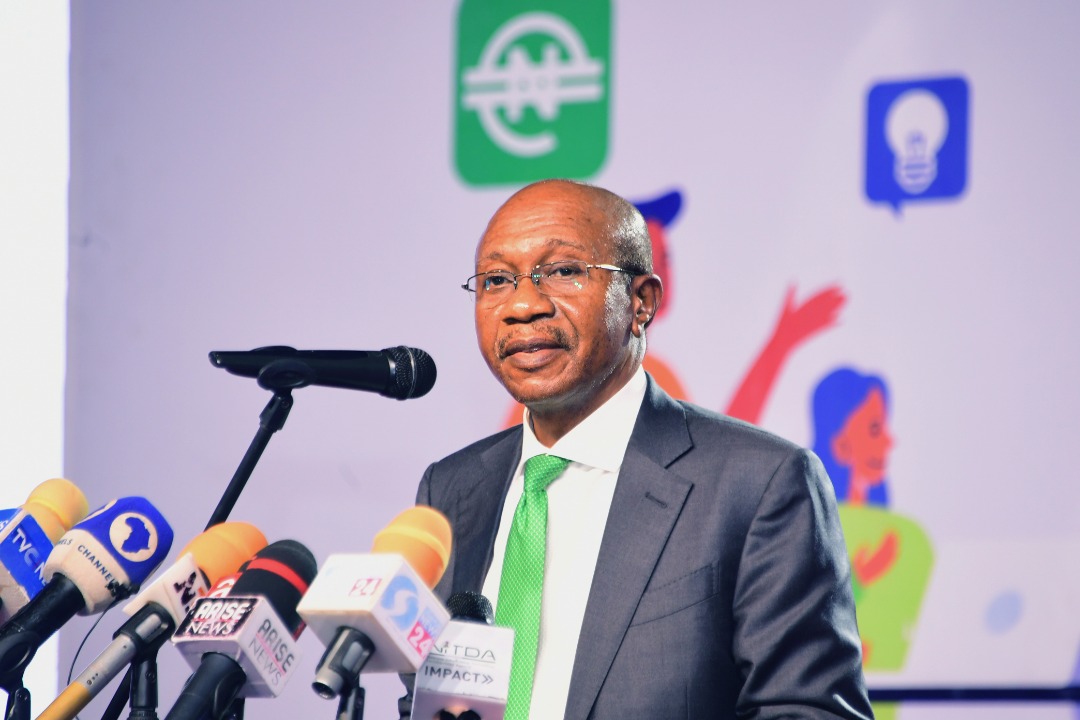The Governor of the Central Bank of Nigeria (CBN), Mr. Godwin Emefiele, has called for policies and programmes that will enable Nigerian women leverage technology and innovation to bridge the digital gender gap.
Mr. Emefiele, in his keynote address at the CBN IWD webinar to commemorate the International Women’s Day Celebrations yesterday noted that digital financial services had become a critical dependency in the economy, providing vast opportunities to bridge the digital gender gap, drive financial inclusion and increase employment and economic opportunities for women.
“CBN’s commitment to promoting gender equality and financial inclusion among women through such policies as the Micro Small and Medium Enterprises Development Fund (MSMEDF), which dedicates 60 per cent of the funding under the scheme to women-owned enterprises, the Framework for Advancing Women’s Financial Inclusion in Nigeria, which seeks to address gender gaps in access to finance, targeted onboarding of women on its central bank digital currency, the e-Naira, amongst others,” he said.
Reps ask CBN to ensure overhaul of online banking services
CBN ‘releases’ mopped up old notes to banks today
Speaking on the theme of the celebration, “Digitise Her: bridging the digital gender gap for financial inclusion and sustainable growth”, Mr. Emefiele attributed the successes recorded by the Bank to the hard work, resilience, and commitment of the female staff.
Mrs. Aishah N. Ahmad, the Deputy Governor, Financial System Stability (FSS), who hosted the Coffee Table Chat with Dr. Omobola Johnson, called for broad private and public sector commitment to gender parity and ensuring that women, youth and rural dwellers have access to digital financial services.
Mrs. Ahmad noted that despite increased digital mainstreaming, women were less likely than men to have access to technology, creating a digital gender gap which perpetuates women’s economic exclusion.
She noted that digital innovation could be the missing link and a winning strategy for fixing the parity problem and deepening access to financial services.

 Join Daily Trust WhatsApp Community For Quick Access To News and Happenings Around You.
Join Daily Trust WhatsApp Community For Quick Access To News and Happenings Around You.


